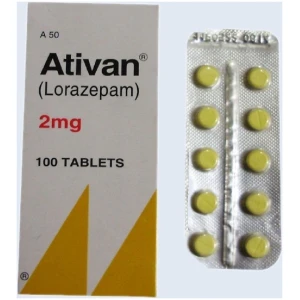Diazepam: A Comprehensive Overview
Diazepam, a medication in the benzodiazepine family, is widely known for its effectiveness in treating anxiety disorders, muscle spasms, and seizures. Developed in the 1960s, this drug quickly gained popularity due to its calming effects and ability to enhance relaxation. In this article, we will delve into the uses, benefits, side effects, and important considerations surrounding diazepam, ensuring a well-rounded understanding of this pharmaceutical option.
What is Diazepam?
Diazepam is a central nervous system (CNS) depressant that works by enhancing the effects of a neurotransmitter called gamma-aminobutyric acid (GABA). This mechanism helps to inhibit excessive brain activity, which can lead to feelings of anxiety. By stabilizing nerve transmission in the brain, diazepam effectively alleviates symptoms associated with anxiety, agitation, and various neurological disorders.
Common Uses of Diazepam
1. Treatment of Anxiety Disorders
One of the primary uses of diazepam is to treat anxiety disorders. Anxiety can be debilitating, affecting various aspects of life. Diazepam helps individuals manage their anxiety levels, fostering a sense of calm and control. This makes it particularly beneficial for those experiencing acute anxiety episodes or panic attacks.
2. Muscle Relaxation
Diazepam is also effective in treating muscle spasms and increasing muscle relaxation. Its ability to reduce muscle tension is invaluable for individuals recovering from injuries, surgeries, or conditions like multiple sclerosis. By easing muscle stiffness, diazepam helps improve mobility and comfort.
3. Seizure Management
Another significant use of diazepam is in the management of seizures. It can be administered during seizures to provide rapid relief, particularly in cases of status epilepticus, a medical emergency requiring immediate treatment. The quick-acting nature of diazepam makes it a preferred option in such critical situations.
4. Alcohol Withdrawal
For individuals undergoing alcohol withdrawal, diazepam can help alleviate symptoms and manage the transition process. The medication can mitigate withdrawal symptoms, making it easier for individuals to regain control and reduce the risk of severe complications.
Benefits of Diazepam
The benefits of diazepam are vast and well-documented. Not only does it provide rapid relief for symptoms of anxiety, muscle spasms, and seizures, but it also has a long history of safety and efficacy when used as directed. Its versatility in treating diverse medical conditions makes it an essential medication for many people.
Additionally, its long half-life means that the effects can be sustained over an extended period, enhancing its appeal for chronic users who require consistent symptom management.
Side Effects and Precautions
Despite its many benefits, diazepam is not without potential side effects. Common side effects include drowsiness, dizziness, fatigue, and impaired coordination. Users might experience cognitive changes, such as confusion or memory issues, particularly with prolonged use. These side effects underscore the importance of adhering to prescribed dosages and regularly consulting with a healthcare provider.
Long-term use of diazepam can lead to dependency and tolerance, necessitating careful management and possibly tapering of the drug under medical supervision. It is crucial for individuals to discuss their complete medical history with physicians to minimize risks associated with therapy.
Conclusion
In summary, diazepam plays a pivotal role in managing anxiety disorders, muscle spasms, seizures, and alcohol withdrawal symptoms. Its effectiveness and versatility have established it as a staple in many treatment regimens. However, users must remain mindful of the potential side effects and the importance of using this medication under a healthcare provider’s guidance.
As with any medication, understanding both the benefits and risks of diazepam allows individuals to make informed decisions about their treatment options. By ensuring appropriate use and monitoring, diazepam can significantly improve quality of life for those who need it.







Reviews
There are no reviews yet.